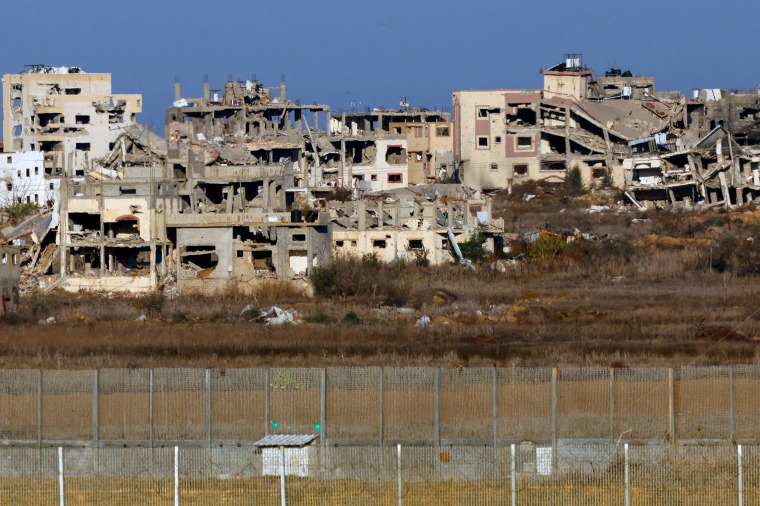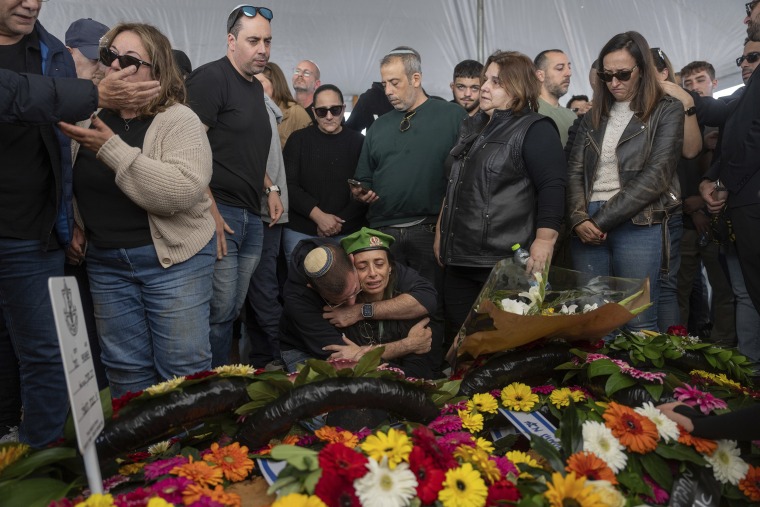A ceasefire deal has been reached to end 15 months of fighting in Gaza, Hamas and Israeli officials and a source briefed on the negotiations told NBC News on Wednesday.
The hard-won agreement will also free dozens of hostages held in Gaza, as well as Palestinian prisoners in Israeli jails, bringing the first real break in violence since a weeklong truce expired Dec. 1, 2023.
The new follows weeks of talks brokered by the United States, Qatar and Egypt, amid a brutal winter for civilians in the Gaza Strip, as well as dramatic developments across the Middle East that have dealt setbacks to Iran, an Israeli foe.
Israel and Hamas have not officially announced a deal. Earlier Wednesday, a diplomatic source in Washington told NBC News that Israeli Prime Minister Benjamin Netanyahu was preparing to meet with his security Cabinet, where approval of the deal was expected quickly. He would then take the pact to the full Cabinet, which is also expected to approve.
Israel’s Supreme Court would have 24 hours to permit an appeal, so the earliest a ceasefire could go into effect would be Friday, the source said. The first group of hostages would come out Sunday, the person added.

Israel launched a military campaign in the Palestinian enclave after Hamas’ Oct. 7 terrorist attack, in which 1,200 people were killed and 250 taken hostage. Just more than 100 were released in late November 2023 during a pause in hostilities, in exchange for 240 Palestinian prisoners.
The war has shattered Gaza’s infrastructure and displaced most of its population. Health officials in the enclave say more than 46,000 Palestinians have been killed by Israeli forces — most of them civilians.
The chances for a ceasefire seemed vanishingly small after many false dawns in recent months.
The Biden administration had called for a final effort before the president leaves office, and many in the region and in Washington viewed President-elect Donald Trump’s inauguration Monday as an unofficial deadline.
Trump pledged last month that “all hell will break out” if Hamas doesn’t promise to release hostages by Jan. 20 and his Mideast envoy, Steve Witkoff, joined talks in the region to push for a deal.

Internationally, Israel’s staunchest allies have largely stood by it during its war in Gaza, but that support has been coupled with the strongest criticism in a generation and widespread calls for a ceasefire from the United States and others.
World leaders have also strongly condemned incidents of sexual violence during Hamas’ attack on Israel, and Israel’s allies have been largely supportive of its proxy war against Iran, which the U.S. has long accused of funding Hamas and the Lebanon-based Hezbollah.

Israel and Hezbollah agreed in November to halt months of deadly fighting with a ceasefire that has largely held.The scale and nature of Israel’s offensive have drawn condemnation from abroad.
In November, the International Criminal Court issued an arrest warrant against Netanyahu for alleged war crimes and crimes against humanity. Amnesty International and Doctors Without Borders, in December accused Israel of carrying out a genocide in Gaza.
Israel has rejected those accusations as false and antisemitic.
The status of dozens of hostages still held by Hamas has riven Israeli society, with the families of remaining hostages leading a campaign to pressure the government to strike a deal.
But Netanyahu has also faced opposing domestic pressure, with some senior ministers rejecting the deal as a “surrender” as sections of Israeli society push for a more hard-line approach.